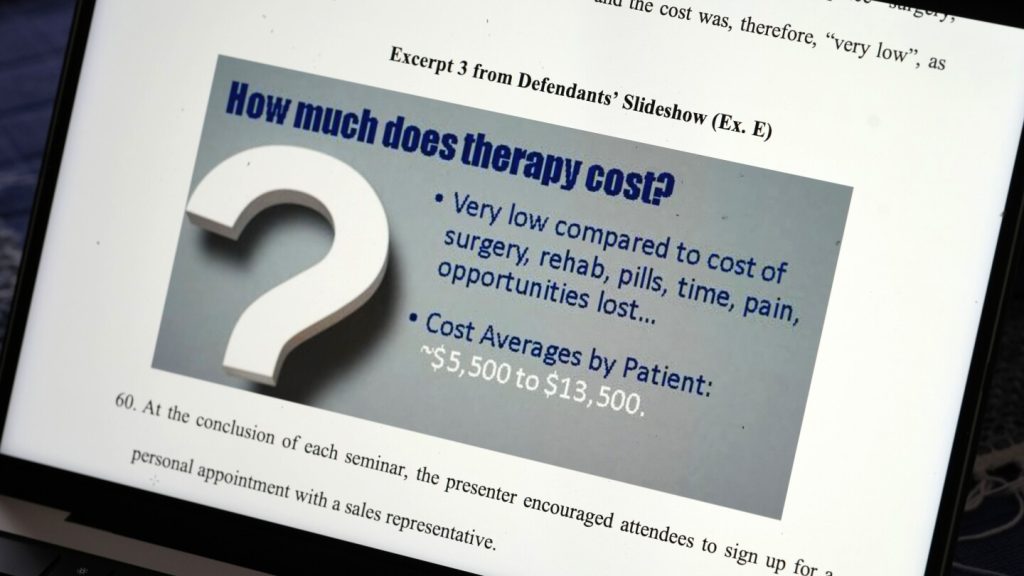A group of businesses targeted Iowans with promises of pain relief through stem cell injections and IVs administered in their own homes. The sales pitch included free dinners followed by high-pressure sales tactics disguised as pre-screenings, which led to over 250 people signing up for treatments ranging from $3,200 to $20,000 each, totaling $1.5 million. The stem cells used were derived from umbilical cords and administered by a nurse practitioner, but experts and regulators have warned against such treatments, calling them ripoffs, scams, or unproven.
Multiple attorneys general across the country, including in New York, North Dakota, Georgia, Nebraska, Arkansas, and Washington state, have taken action against businesses promoting unproven stem cell treatments. Stem cells have the potential to treat various diseases and injuries, but the FDA has only approved a few therapies for specific conditions. Despite being marketed for a wide range of ailments, from autism to sports injuries, stem cell treatments are considered experimental and can lead to serious harm, including blindness, infections, and tumors.
The FDA has issued warnings about the dangers of unapproved stem cell therapies, raising concerns about consumers being misled by products that have not been proven safe or effective. Experts have noted cases of patients experiencing vision loss and other adverse effects from unproven treatments. With federal action being insufficient to regulate the industry, state attorneys general are taking legal action against businesses that deceive consumers with unproven stem cell therapies, with the hope of imposing fines and regulations to protect the public.
In Iowa, Attorney General Brenna Bird filed a lawsuit against businesses responsible for mailings offering pain relief through stem cell treatments. The companies, Biologics Health and Summit Partners Group, operated under the name Summit Health Centers and were accused of deceiving consumers, particularly the elderly, with false promises of stem cell treatments. The proprietors, Rylee Meek and Scott Thomas, hosted free dinners where they made misleading claims about the effectiveness of stem cells for back and joint pain, despite lacking medical expertise and FDA approval.
The lawsuit described the practices of Meek and Thomas as profit-driven experiments with little regard for safety or efficacy. Customers were offered packages of stem cell treatments ranging from 5 million to 60 million cells, with testimonies suggesting significant improvements in various conditions. However, research has shown that many injected cells are dead, raising concerns about the effectiveness of the treatments. The case is ongoing, with the trial set for March 2025, as the defendants denied the allegations of deception and emphasized that they were not medical professionals.
While Meek and Thomas have not responded to requests for comments, their attorney defended them against allegations of deception in court filings. The businesses downplayed safety concerns and misrepresented potential side effects, leading to complaints from customers who saw no improvement in their conditions despite paying significant amounts for stem cell treatments. Experts warn that such practices not only harm patients but also exploit their desperation for relief, highlighting the need for stronger regulations and enforcement to protect consumers from fraudulent stem cell treatments.


